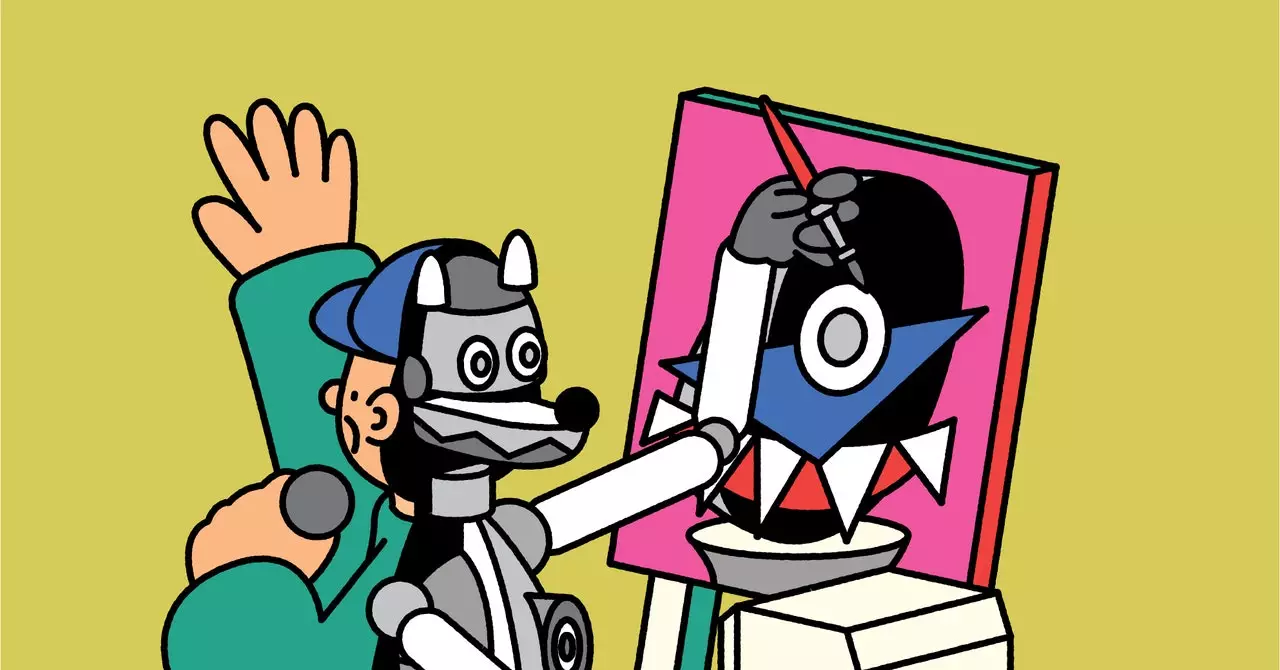The emergence of artificial intelligence (AI), particularly large language models like ChatGPT, has stirred a complex mix of anxiety and excitement across various sectors, especially the creative industries. There is a palpable fear that technology could overshadow human creativity, erasing the passion and effort once essential to artistic expression. Yet, as we project into the near future, particularly towards 2025, it’s crucial to explore the nuanced relationship between humanity and AI. One of the most compelling examples of this evolving dynamic can be found in hip-hop—a genre that not only thrives on innovation but also reflects broader cultural shifts.
While many view AI as a threat to jobs and creative expression, it’s vital to recognize its potential as a collaborative partner. The hallmark of hip-hop has always been its resilience and adaptability. This genre, born from adversity and innovation, signifies a broader cultural narrative that embraces change rather than fears it. Artists today are beginning to experiment with AI to augment their creative processes, leading to new sounds and ideas. The music industry is already witnessing instances of AI-generated tracks being mistaken for those composed by human artists, a testament to the capabilities of these advanced models. The viral nature of such content emphasizes how technology can drive engagement in ways previously unseen.
As we approach 2025, an intriguing future awaits, one where AI-generated content coexists with traditional hip-hop. This evolving landscape will likely encompass three major trends: full surrender to AI creativity, a hybridization of man and machine, and a newfound appreciation for human-made artistry.
The first trend, characterized by “full surrender,” raises important questions about artistic authenticity. In an age where AI can generate terabytes of music almost instantaneously, will musicians lean into this technology, allowing machines to take the reins? Some may choose to relinquish traditional music-making processes and instead curate AI-generated content. Curators and influencers will emerge as vital figures in this new ecosystem, directing audiences to high-quality AI-generated works, reminiscent of how TikTok influencers elevate art’s visibility today. This shift toward curation over creation aligns with the growing trend of valuing the process of discovery, engagement, and commentary—a defining aspect of modern artistry.
Indeed, a thriving neo-influencer culture is likely to develop, one that critiques, enjoys, and even commercializes AI art. With human creativity at the center, this new wave of influencers may drive significant financial returns, creating a business model that values opinion and taste over the creation of original works.
The second trend represents a more nuanced relationship between humans and AI, where creativity emerges from collaboration rather than competition. As artists increasingly utilize AI as a tool—producing reinterpretations or experimental mash-ups of popular tracks—a fresh type of creativity will unfold. This includes scenarios where rappers collaborate with AI models, perhaps even forming duo acts that blend human ingenuity with machine-generated hooks.
Such collaborations can redefine the creative landscape, allowing for genres that hadn’t previously existed. For instance, AI might assist in crafting battle rap scenarios or challenge artists to push the boundaries of traditional hip-hop. As human musicians explore this territory, they will inevitably discover new avenues for artistic expression, leading to the birth of previously unimaginable subgenres.
Finally, as AI-generated content flourishes, we will witness an ironic appreciation for human-crafted artistry, particularly in hip-hop’s legacy. The sheer volume of AI creations may prompt listeners and artists alike to recognize the value of original works. In a world flooded with synthetic music, rare and authentic compositions will gain substantial cultural and financial worth. This trend echoes the rise of retro aesthetics in the tech industry, which often glorifies the “simpler” eras of creativity.
For hip-hop, a genre still grappling for recognition amidst the larger musical canon, this revival could bolster respect for its origins. As the genre approaches its landmark anniversaries, the legacy and foundational artists might finally receive the attention and accolades they deserve, elevating hip-hop to its rightful place in the artistic pantheon.
In contemplating the integration of AI into creative fields like hip-hop, we understand that the relationship between technology and artistry need not be adversarial. Instead, as we advance toward 2025, the potential for synthesis—where human creativity and AI collaborate—presents a fertile ground for exploration. This age of AI, rather than stifling creativity, could liberate it in unexpected ways, paving the path for a cultural renaissance that upholds the significance of human expression while embracing the transformative power of innovation. The intersection of technology and artistry may illuminate a future where both can coexist and thrive, marking a new era for hip-hop and beyond.


Leave a Reply